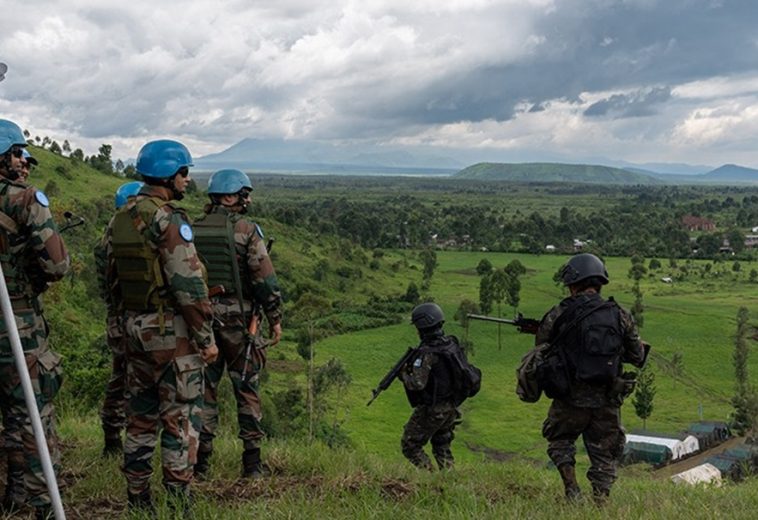Access to clean, safe water remains a critical issue across Africa. With water scarcity, poor water quality, and inadequate infrastructure affecting millions of lives, the continent faces mounting pressure to secure its water resources. Compounded by rapid population growth, economic expansion, and the unpredictable impacts of climate change, Africa’s water crisis demands urgent, innovative solutions.
Understanding the State of Water Security in Africa
Africa’s water security situation is dire, with several alarming trends underscoring the severity of the challenge:
• Water scarcity: Over 300 million people in Africa still lack access to clean drinking water. The growing demand, combined with erratic weather patterns caused by climate change, has worsened water scarcity across the continent.
• Poor water quality: In many areas, available water sources are contaminated by bacteria, viruses, and industrial pollutants, making them unsafe for human consumption.
• Inadequate infrastructure: Many countries suffer from underdeveloped water infrastructure, lacking systems for proper water storage, treatment, and distribution.
• Climate change impact: Changing rainfall patterns, prolonged droughts, and more frequent floods make it increasingly difficult to manage existing water supplies.
The need to address these issues is not just urgent—it’s critical for the wellbeing of millions and the overall economic development of the continent.
READ ALSO: Africa’s Progress Towards Clean Water Security
Key Drivers Behind Africa’s Water Security Crisis
Several interlinked factors contribute to the growing water security challenges in Africa:
1. Population growth: With Africa’s population projected to nearly double by 2050, the demand for water will continue to rise exponentially.
2. Economic development: Expanding agriculture, industrialisation, and energy production require vast amounts of water, often outpacing supply capacity.
3. Weak governance: Inadequate policies, poor regulatory frameworks, and insufficient investments in water management have hindered progress.
4. Climate vulnerability: Many African countries remain vulnerable to climate change, with limited capacity to mitigate or adapt to its impacts.
Addressing these factors will require a coordinated approach that balances immediate needs with long-term sustainability.
Innovative Solutions Shaping Africa’s Water Future
Despite the daunting obstacles, African countries and innovators are making strides in improving water security. Here are some promising solutions:
1. Water Harvesting and Storage
Communities are increasingly adopting rainwater harvesting and groundwater recharge systems to store water during rainy periods for use in dry seasons. These methods have proven effective in both rural and urban areas where conventional water supply systems are limited.
2. Improved Water Efficiency
Promoting water-efficient technologies—such as low-flow taps, drip irrigation systems, and drought-resistant crops—has helped reduce water consumption in households and agriculture.
Example: Kenya has successfully reduced water demand in urban areas by introducing conservation-focused campaigns.
3. Wastewater Treatment and Reuse
Countries like Egypt are leading in wastewater recycling, turning treated wastewater into a valuable resource for irrigation and industrial use. This not only reduces pressure on freshwater supplies but also helps in maintaining environmental balance.
4. Desalination and Water Recycling
In regions near coastlines, desalination plants are providing clean drinking water by removing salt from seawater. Morocco has invested heavily in this technology, ensuring a reliable water supply for both domestic and agricultural needs.
5. Climate-Resilient Infrastructure
Building flood-resistant reservoirs and climate-resilient water treatment plants is helping communities withstand extreme weather events. These infrastructures are designed to endure harsh conditions while ensuring continued access to safe water.
African Countries Leading the Way in Water Security
Several African nations have launched successful initiatives that can serve as models for others:
• South Africa: Its national programme on water harvesting and storage has significantly improved water availability, particularly in semi-arid regions.
• Kenya: Water efficiency measures and public awareness campaigns have helped curb water wastage and ensure more equitable distribution.
• Egypt: With one of the largest wastewater treatment programmes in Africa, Egypt has turned wastewater into a key resource for agriculture.
• Morocco: A pioneer in desalination and water recycling, Morocco has ensured a steady supply of clean water in drought-prone regions.
Can Africa Meet Global Water Targets?
Despite ongoing efforts, achieving universal access to clean water remains a formidable task. According to recent estimates:
• 418 million people in Africa still lack basic drinking water services.
• 779 million lack access to basic sanitation facilities.
• 839 million lack access to basic hygiene services.
Meeting the United Nations Sustainable Development Goals (SDGs) by 2030 will require a 12-fold increase in current progress rates for drinking water, a 20-fold increase for sanitation, and a 42-fold increase for hygiene services.
Several international partnerships, such as the European Union’s Horizon 2020 programme, have already started funding projects aimed at improving water management and sanitation in Africa. These efforts offer hope, but sustained investment and collaboration will be necessary to bridge the gap.
A Collective Effort for a Sustainable Water Access
Africa’s water security challenge is a complex issue that requires a multi-pronged approach. By scaling up investments in water harvesting, efficiency technologies, wastewater reuse, desalination, and climate-resilient infrastructure, African countries can secure their water resources and ensure a sustainable future for all.
The road ahead will not be easy, but with innovation, strong governance, and international cooperation, there is hope for significant progress. Addressing this crisis is not just about meeting targets—it’s about improving lives, boosting economies, and building a resilient future for the continent.




